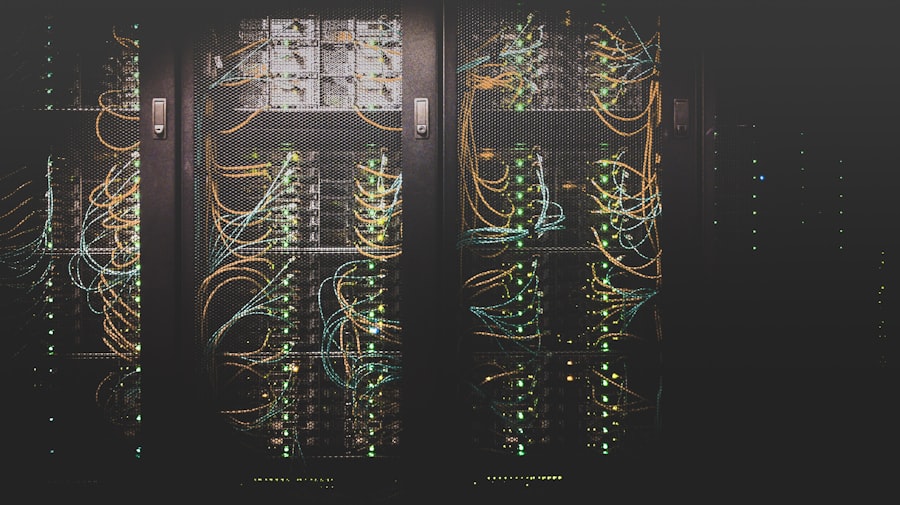SMS-iT ERP and CRM are two critical software solutions designed to enhance business operations. Enterprise Resource Planning (ERP) is a comprehensive system that integrates various business processes and functions into a unified platform. Customer Relationship Management (CRM) focuses on managing and improving customer relationships to boost sales and customer satisfaction.
Both systems are vital for businesses seeking to increase efficiency, productivity, and customer satisfaction. SMS-iT ERP is a robust tool that assists businesses in managing and automating various back-office functions, including accounting, inventory management, human resources, and supply chain management. It provides a centralized platform for businesses to streamline operations, improve decision-making processes, and increase overall productivity.
CRM, conversely, is a customer-focused system that helps businesses manage interactions with existing and potential customers. It allows companies to track customer interactions, manage leads, and deliver personalized experiences to drive sales and enhance customer loyalty.
Key Takeaways
- SMS-iT ERP and CRM is a comprehensive software solution for managing business operations and customer relationships.
- SMS-iT ERP functions include inventory management, order processing, and financial management.
- CRM functions of SMS-iT include customer data management, sales automation, and marketing campaign tracking.
- Key differences between SMS-iT ERP and CRM lie in their focus on internal operations and customer relationships, respectively.
- Choosing the right system for your business involves evaluating your specific needs and considering the integration of SMS-iT ERP and CRM for maximum efficiency.
Understanding the functions of SMS-iT ERP
Financial Management
One of the key functions of SMS-iT ERP is financial management, which includes features such as accounting, budgeting, and financial reporting. This allows businesses to track their financial performance, manage expenses, and make informed financial decisions.
Inventory and Supply Chain Management
Another important function of SMS-iT ERP is inventory management, which helps businesses track and manage their inventory levels, optimize stock levels, and streamline the procurement process. This ensures that businesses have the right amount of stock at the right time, reducing carrying costs and improving customer satisfaction. Additionally, SMS-iT ERP provides features for supply chain management, allowing businesses to optimize their supply chain processes, reduce lead times, and improve overall operational efficiency.
Human Resource Management and Operational Efficiency
SMS-iT ERP also offers functions for human resource management, including payroll processing, employee scheduling, and performance management. This helps businesses streamline their HR processes, improve employee satisfaction, and ensure compliance with labor regulations. By providing a comprehensive solution for managing resources and operations, SMS-iT ERP helps businesses make informed decisions to drive growth and success.
Understanding the functions of CRM

CRM is a vital tool for businesses looking to build and maintain strong relationships with their customers. One of the key functions of CRM is sales automation, which helps businesses streamline their sales processes, track leads, and manage opportunities effectively. This allows sales teams to focus on high-value activities and improve their overall productivity.
Additionally, CRM offers marketing automation features that help businesses create targeted marketing campaigns, track customer interactions, and analyze campaign performance. This enables businesses to engage with customers effectively and drive sales through personalized marketing efforts. Moreover, CRM provides customer service management functions that help businesses track customer inquiries, manage support tickets, and provide timely and effective customer support.
This ensures that businesses can address customer issues promptly and improve overall customer satisfaction. Furthermore, CRM offers analytics and reporting features that help businesses gain insights into customer behavior, sales performance, and marketing effectiveness. This enables businesses to make data-driven decisions and continuously improve their customer engagement strategies.
Overall, CRM is a powerful tool that helps businesses build strong customer relationships and drive sales growth.
Key differences between SMS-iT ERP and CRM
While both SMS-iT ERP and CRM are essential for business success, they serve different purposes and offer distinct functionalities. SMS-iT ERP focuses on managing internal business processes such as financial management, inventory management, human resource management, and supply chain management. It provides a centralized platform for businesses to streamline their operations and make informed decisions to drive growth and efficiency.
On the other hand, CRM is focused on managing customer relationships and driving sales growth through sales automation, marketing automation, customer service management, and analytics. Another key difference between SMS-iT ERP and CRM is their primary focus areas. SMS-iT ERP is designed to optimize internal business processes and resource management, while CRM is focused on managing external interactions with customers and driving sales growth.
Additionally, SMS-iT ERP is more concerned with operational efficiency and resource optimization, while CRM is more focused on customer engagement and relationship management.
Choosing the right system for your business
When choosing between SMS-iT ERP and CRM for your business, it’s important to consider your specific business needs and goals. If your business is looking to streamline internal processes such as financial management, inventory management, human resource management, and supply chain management, then SMS-iT ERP would be the ideal choice. On the other hand, if your business is looking to improve customer relationships, drive sales growth, and enhance customer satisfaction, then CRM would be the best fit.
It’s also important to consider the scalability of the system and how well it can adapt to your business’s future growth. Additionally, consider the integration capabilities of the system with other software solutions you may already have in place. Ultimately, the right system for your business will depend on your specific needs and goals.
Integrating SMS-iT ERP and CRM for maximum efficiency

Enhanced Operational Visibility
Integrating SMS-iT ERP with CRM provides a unified view of business operations, enabling companies to make more informed decisions and respond quickly to changing market conditions.
Streamlined Processes
The integration of SMS-iT ERP and CRM also enables businesses to simplify and automate various processes, such as order fulfillment, invoicing, and customer support. This leads to a seamless experience for both internal teams and customers, resulting in improved satisfaction and loyalty.
Better Collaboration and Decision-Making
By integrating the two systems, businesses can facilitate better data sharing between departments, leading to improved collaboration and more informed decision-making. This, in turn, drives business growth and success.
Maximizing business operations with the right software solutions
In conclusion, SMS-iT ERP and CRM are essential software solutions that play a crucial role in optimizing business operations and driving growth. While SMS-iT ERP focuses on managing internal business processes such as financial management, inventory management, human resource management, and supply chain management; CRM is focused on managing customer relationships and driving sales growth through sales automation, marketing automation, customer service management, and analytics. Choosing the right system for your business will depend on your specific needs and goals.
It’s important to consider factors such as scalability, integration capabilities, and how well the system aligns with your business objectives. Additionally, integrating SMS-iT ERP with CRM can provide significant benefits by providing a comprehensive view of operations and customer interactions. Ultimately, by leveraging the power of SMS-iT ERP and CRM together, businesses can maximize efficiency, drive growth, and improve overall business operations.
With the right software solutions in place, businesses can stay ahead of the competition and deliver exceptional value to their customers.
If you’re interested in learning more about SMS-iT CRM software for small businesses, check out this article for a detailed overview of its features and benefits.
FAQs
What is the difference between ERP and CRM?
ERP (Enterprise Resource Planning) and CRM (Customer Relationship Management) are both software systems used by businesses, but they serve different purposes. ERP focuses on managing and integrating a company’s internal processes and resources, such as finance, HR, inventory, and production. CRM, on the other hand, is designed to manage and analyze customer interactions and data throughout the customer lifecycle, with the goal of improving customer relationships and driving sales growth.
What are the key features of an ERP system?
Key features of an ERP system include financial management, supply chain management, inventory management, production planning, human resources management, and customer relationship management. ERP systems are designed to streamline and integrate a company’s internal processes and data, providing a comprehensive view of the business’s operations.
What are the key features of a CRM system?
Key features of a CRM system include contact management, lead management, sales pipeline management, customer service and support, marketing automation, and analytics and reporting. CRM systems are designed to help businesses manage and analyze customer interactions and data, with the goal of improving customer relationships and driving sales growth.
How do ERP and CRM systems work together?
While ERP and CRM systems serve different purposes, they can work together to provide a comprehensive view of a company’s operations and customer interactions. Integration between the two systems allows for seamless data sharing and improved visibility into customer interactions, sales orders, inventory levels, and financial data. This integration can help businesses make more informed decisions and improve overall efficiency.







